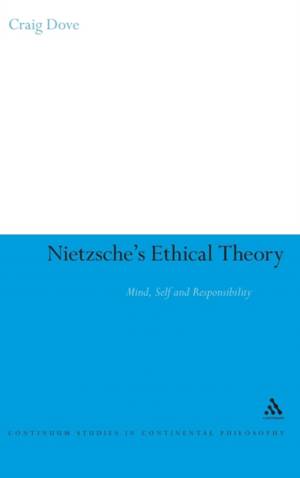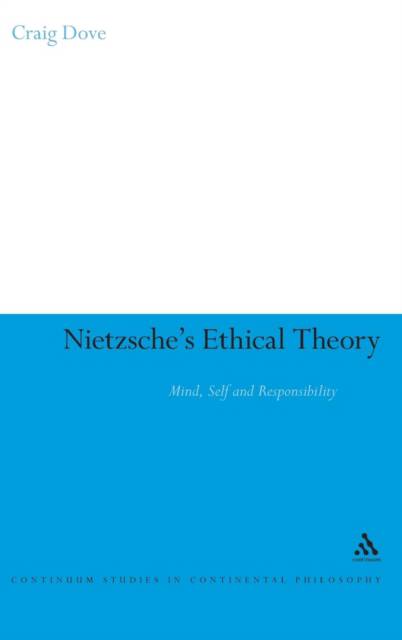
Je cadeautjes zeker op tijd in huis hebben voor de feestdagen? Kom langs in onze winkels en vind het perfecte geschenk!
- Afhalen na 1 uur in een winkel met voorraad
- Gratis thuislevering in België vanaf € 30
- Ruim aanbod met 7 miljoen producten
Je cadeautjes zeker op tijd in huis hebben voor de feestdagen? Kom langs in onze winkels en vind het perfecte geschenk!
- Afhalen na 1 uur in een winkel met voorraad
- Gratis thuislevering in België vanaf € 30
- Ruim aanbod met 7 miljoen producten
Zoeken
Omschrijving
This important new book explores the ethical theory of Friedrich Nietzsche in light of recent work done in the philosophy of mind.
Craig Dove examines issues of free will, communication, the way in which we construct the self, and the implications of all these for ethics. After dismissing what he calls the 'soul hypothesis', Nietzsche is left with a problem: how do we explain the sense of unity and continuity most of us experience as our identity? Drawing on recent work in cognitive science and philosophy of mind, this study shows that Nietzsche's tentative suggestions in the late nineteenth century have been supported by late twentieth century research. Arguing that work done in the philosophy of mind by Paul Churchland and Daniel Dennett helps to illuminate Nietzsche's positive ethical doctrine, Dove goes on to show that recent work has not adequately thought through the implications for ethics, while Nietzsche has already accomplished precisely that. This is an important and original contribution to an ongoing debate.
Craig Dove examines issues of free will, communication, the way in which we construct the self, and the implications of all these for ethics. After dismissing what he calls the 'soul hypothesis', Nietzsche is left with a problem: how do we explain the sense of unity and continuity most of us experience as our identity? Drawing on recent work in cognitive science and philosophy of mind, this study shows that Nietzsche's tentative suggestions in the late nineteenth century have been supported by late twentieth century research. Arguing that work done in the philosophy of mind by Paul Churchland and Daniel Dennett helps to illuminate Nietzsche's positive ethical doctrine, Dove goes on to show that recent work has not adequately thought through the implications for ethics, while Nietzsche has already accomplished precisely that. This is an important and original contribution to an ongoing debate.
Specificaties
Betrokkenen
- Auteur(s):
- Uitgeverij:
Inhoud
- Aantal bladzijden:
- 176
- Taal:
- Engels
- Reeks:
- Reeksnummer:
- nr. 23
Eigenschappen
- Productcode (EAN):
- 9780826498748
- Verschijningsdatum:
- 1/08/2008
- Uitvoering:
- Hardcover
- Formaat:
- Genaaid
- Afmetingen:
- 155 mm x 239 mm
- Gewicht:
- 376 g

Alleen bij Standaard Boekhandel
+ 746 punten op je klantenkaart van Standaard Boekhandel
Beoordelingen
We publiceren alleen reviews die voldoen aan de voorwaarden voor reviews. Bekijk onze voorwaarden voor reviews.









